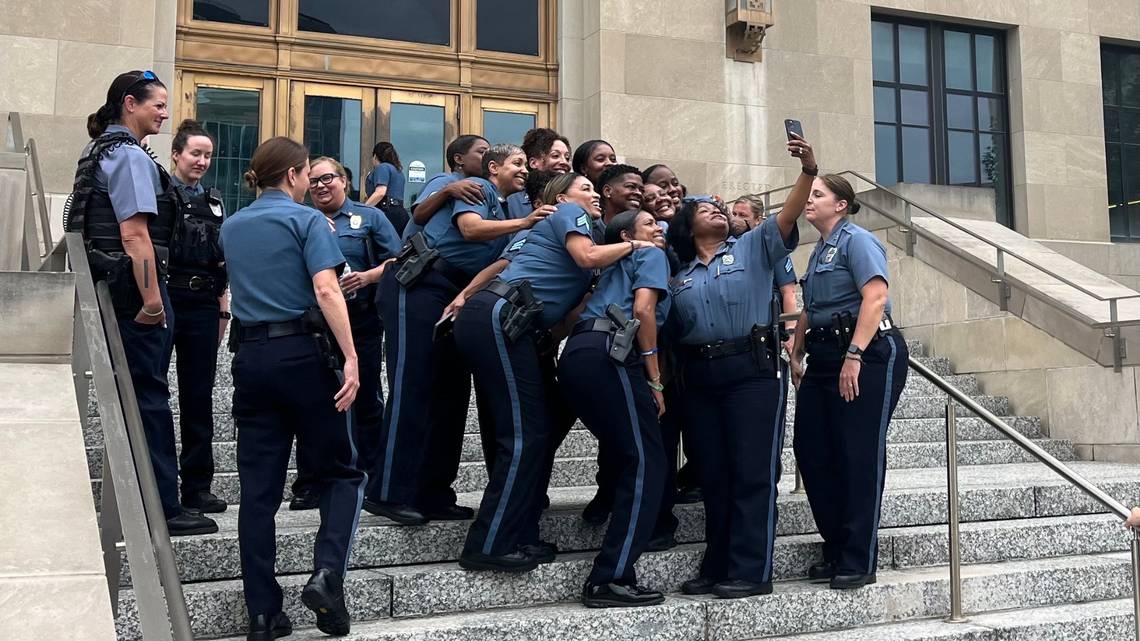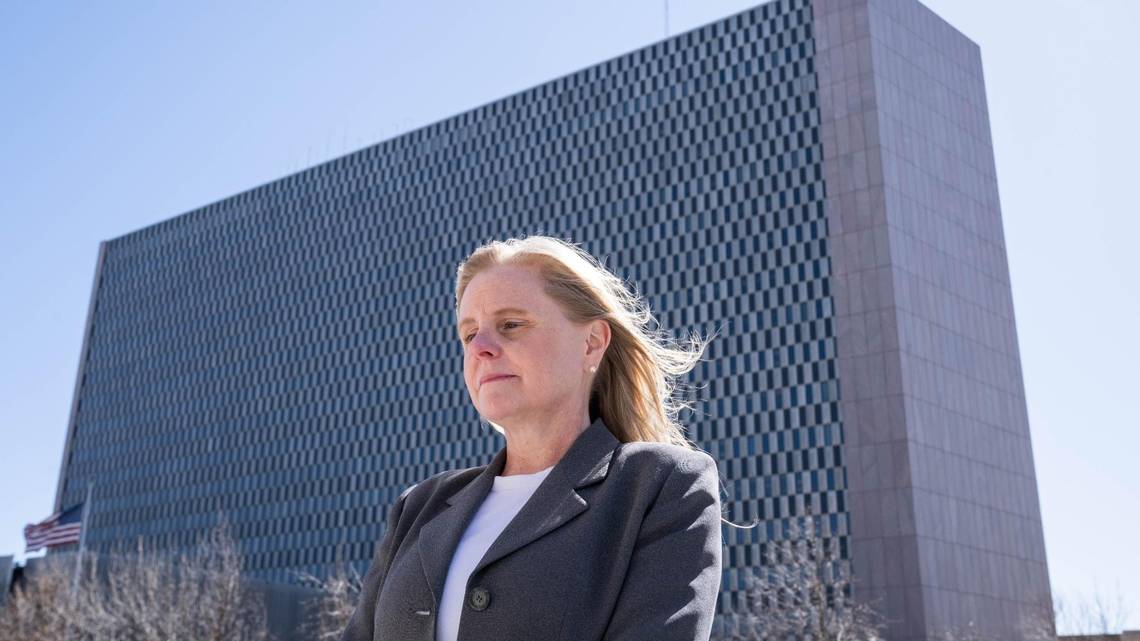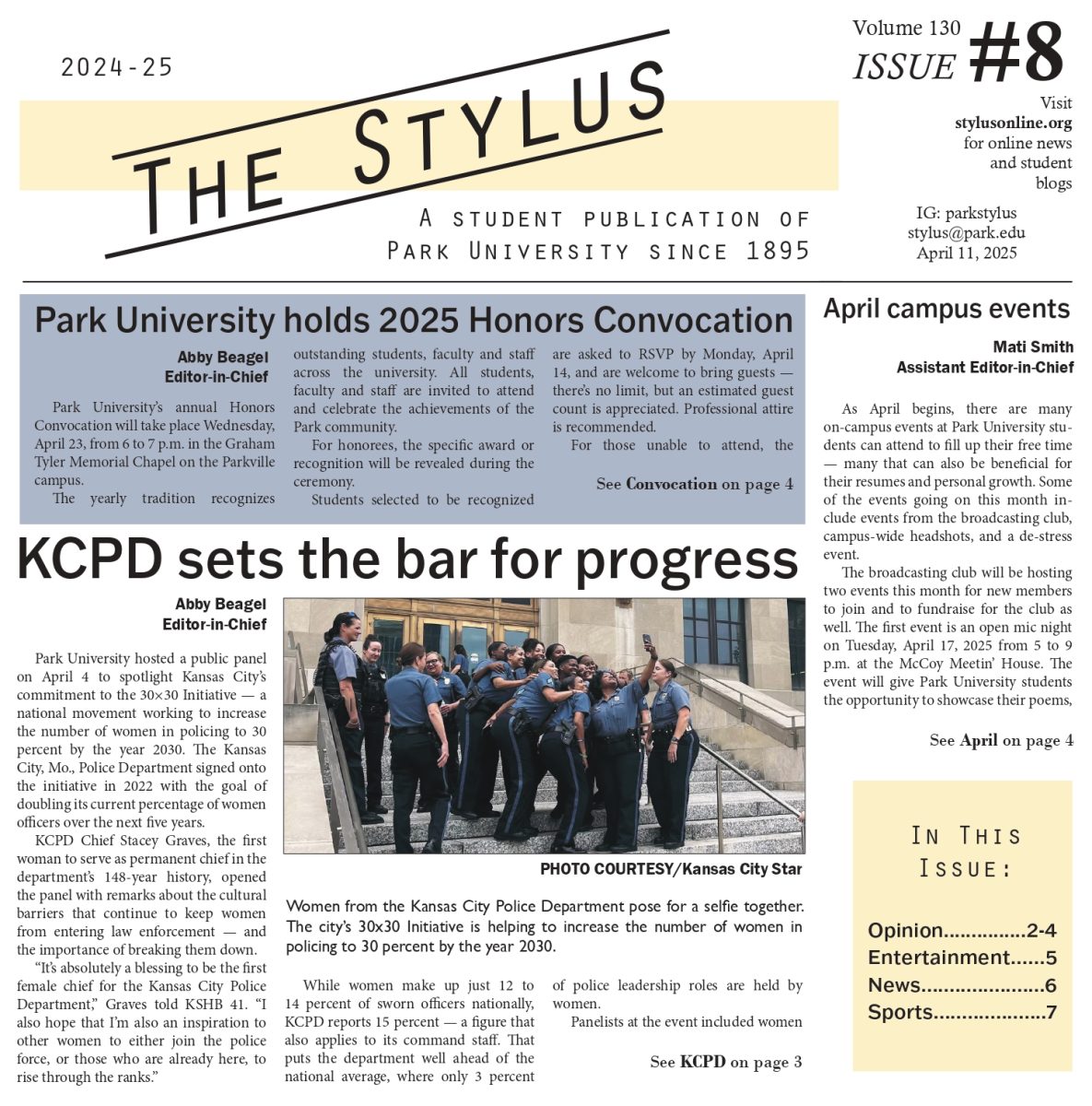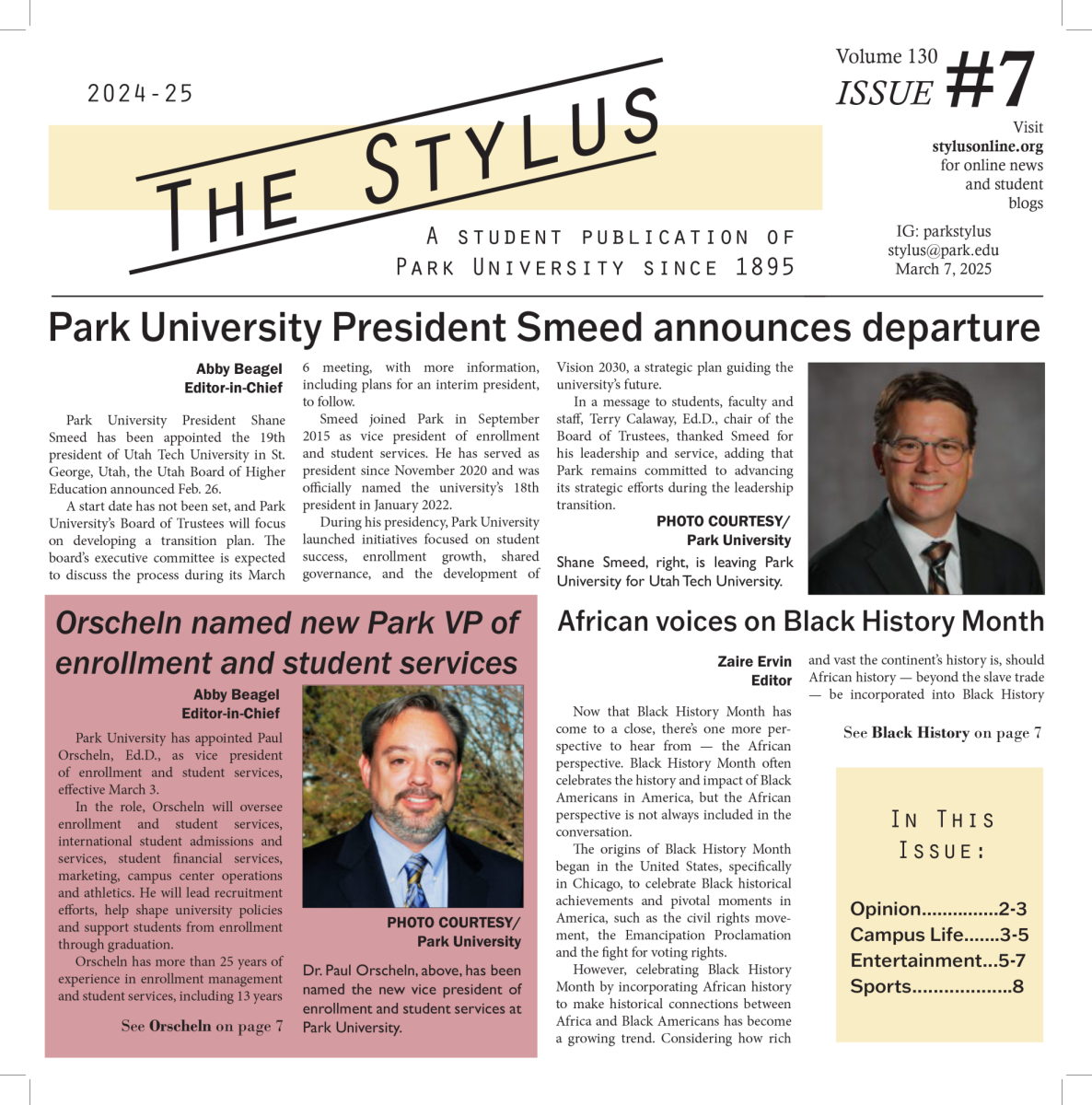New and improved technology may be in Park University’s future if funding is made available – which could include a new technology fee or tuition increase.
Changes and improvements are expected to be implemented by the Park University Information Technology Services if funding is allocated. A committee has been developed which has proposed various ideas for new technology at the university as well as ways to fund these changes.
According to Nathan Scherman, assistant director of technology procurement and network infrastructure, the proposed projects are focused on academic technology to help students and faculty.
A document proved by the information technology services explained the purpose of a possible technology fee including “provision of end user devices for all campuses, wideband Internet connectivity for academic use, technology enhanced learning and recreation spaces, and support services (training, HelpDesk, staffing).”
David Monchusie, chief information officer of information technology services, described the response from committee meetings and from the student body.
“We made a proposal about it,” he said. “There were very positive responses from the student body. At the end of the day the proposal is going to go to a finance committee meeting and they will decide what they want. However, in my last meeting, I still know there is no clarity on how they want to do the technology fee or if the university will have a different way to approach it.”
Mika Mahyenga, junior in economics and PSGA president, explained the changes and benefits this will bring.
“The PSGA is not directly involved with it,” he said. “But we had a meeting with them on Tuesday, with the head of the IT department David Monchusie, who also set a committee that is supposed to process the technology, talk about what they need to do, and how it’s supposed to go on.”
After the funding proposal was made, the committee attended one of the PSGA general assembly meetings to explain how the technology fee will benefit students.
“It was like a two way traffic meeting,” said Mahyenga. “We told where technology was lacking and where we needed improvements and he told us how this will make Park’s technology better. They want to implement faster Internet and virtual apps where Microsoft word, excel, and power point will be available online so people can access from their personal computers, just log online and you can access those apps.”
At the moment, the implementations are planned to be made to the Parkville campus. However, this is expected to be implemented in all campus centers since it will benefit online students and military students, according to Mahyenga.
“Virtual apps is basically a webpage that students are able to go to whether it is on your phone or your tablet or any Internet connection you have at home or on campus,” said Scherman. “And all you have to do is log in and if you are working on any class that you need to type up a document or do a power point presentation you can access online.”
In order for changes to happen, the proposed funding must be secured.
“What we are talking about is more of a proposal where we are funding technology,” said Scherman, “Whether that is through a stated fee or built in tuition. We have submitted the proposal and the financial committee and board of trustees will make the decisions.”
The committee has also researched other schools and has studied their technology fees and tuition rates.
“There’s an expectation that students want to enhance in technology they want higher speed Internet but our tuition remains extremely low compared to other schools,” said Monchusie. “In most cases tuition is double that of our tuition. We cannot have high expectations and not change tuition so it has to be founded somewhere whether it is going to be with tuition or other but we have to get more money to do these enhancements that people expect to see.”
According to a document provided by the IT department, tuition for a 30 credit hour year at Park is $10,500 with a $50 student activity fee and no technology fee or parking fee required. For comparison, Avila University’s tuition is $24,750 with a $30 per hour technology fee and $250 activity fee. William Jewell College has a tuition of $30,800 with a $300 student activity fee and $100 parking fee.
Proposals are still being discussed and there is no immediate time frame for completion. However, the committee organizers are expecting to implement the funding and technology plan by Fall 2014.







